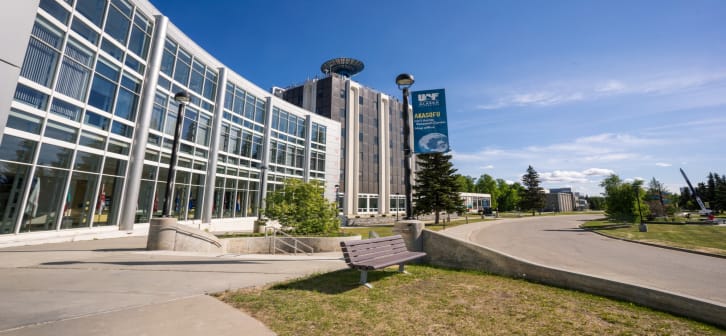Many Alaskan Students Aren’t Accepting State’s Merit-Based Scholarship
Contributing Writer
Editor & Writer
Contributing Writer
Editor & Writer

- A record low percentage of students who qualified for the Alaska Performance Scholarship used that award, according to a report from the Alaska Commission on Postsecondary Education.
- Fifty-six percent of eligible students who didn't use the award in 2022 said they didn't want to attend college in the state, and 44% said they already decided on a different school outside of the state when they found out they were eligible for the merit-based scholarship.
- Eligibility for the scholarship hit an all-time low of 17% for the class of 2022 following the reinstatement of standardized testing requirements, according to the report.
- Only 22% of eligible students used the award the fall following their high school graduation, according to the report.
Eligibility rates for a merit-based scholarship in Alaska hit an all-time low in 2022, and few students who qualified for the in-state scholarship chose to accept it.
Not wanting to attend college or a vocational school in Alaska was the most-cited reason for not accepting the Alaska Performance Scholarship (APS), according to a report from the Alaska Commission on Postsecondary Education. Fifty-six percent of eligible students who didn't use the award said they didn't want to attend college in the state. And 44% said they already decided on a different school outside of the state when they found out they were eligible for the merit-based scholarship.
Only 22% of eligible students used the award the fall following their high school graduation, according to the report. That figure is similar to 24% for the classes of 2020 and 2021, but far below its peak acceptance of 39% in 2016.
The eligibility rate for the scholarship hit an all-time low in 2022 at just 17%, according to the report.
"APS eligibility rates declined steadily between 2014 and 2019, after which rates increased in 2020 and 2021 due to temporary suspension of standardized testing requirements," the report reads. "Reinstatement of the standardized testing requirements in 2022 is likely related to the steep drop in eligibility among the class of 2022."
The scholarship features three different tiers based on GPA and standardized testing scores. The top tier pays up to $4,755 in tuition per year, followed by $3,566 for the second tier and $2,378 for the third tier.
Paul Layer, the University of Alaska vice president for academics, students, and research, noted in a statement to BestColleges that the report showed Alaska Performance Scholarship recipients who attended the school demonstrated high college readiness and got high marks for completion and college performance.
"They are another example of how APS and the University are educating and empowering Alaska's future by keeping students in the state and participating in the Alaska workforce," Layer said in the statement.
Some students face barriers around the scholarship, according to the Anchorage Daily News, which first reported on the survey. Students in some of the state's vast rural areas, for example, have to travel to access standardized testing. The scholarship's standardized testing requirement was waived for the classes of 2020 and 2021.
Roughly 12% of all high school graduates and 41% of all students eligible for the award have used the Alaska Performance Scholarship since its inception in 2011, according to the report.
Layer said the report "underscores our budget request's focus on financial stability and certainty, and our ongoing efforts to keep student costs down."
Latest News
















